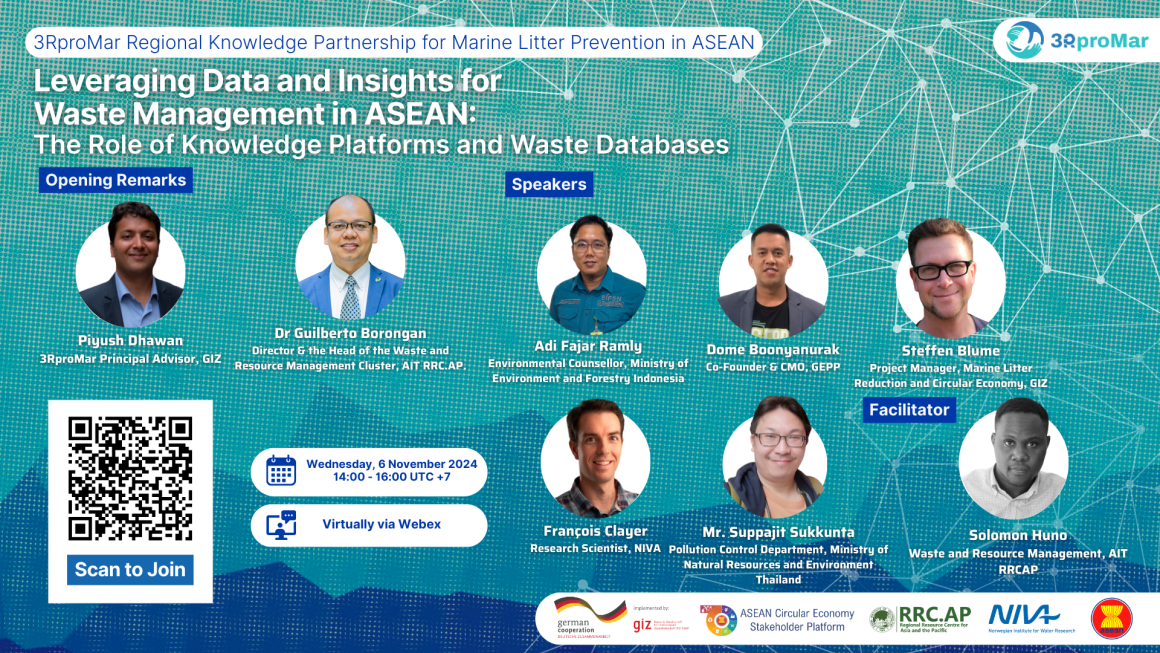BACKGROUND:
Marine plastic pollution poses significant risks to ecosystems and economies across the ASEAN region. To address this issue, ASEAN and Germany are co-implementing the “Reduce, Reuse and Recycle to Protect the Marine Environment and Coral Reefs” project (3RproMar). This initiative aims to reduce land-based waste leakage and protect the marine environment, aligning with the ASEAN Regional Action Plan (RAP) for Combating Marine Debris. The project focuses on Cambodia, Indonesia, the Philippines, and Viet Nam, fostering regional collaboration to strengthen efforts against plastic pollution. As the international community commits to developing a legally binding instrument (ILBI) to combat plastic pollution—expected to be finalised by the end of 2024—3RproMar supports ASEAN Member States (AMS) in enhancing their capacities in anticipation of these global commitments.
Through the “3RproMar Regional Knowledge Partnership for Marine Litter Prevention in ASEAN,” the project collaborates with the Asian Institute of Technology (AIT), the Economic Research Institute for ASEAN and East Asia (ERIA), and the Norwegian Institute for Water Research (NIVA) to strengthen knowledge sharing among AMS by leveraging web platforms, publications, and annual regional workshop series. To further these efforts, thematic webinars are organised, providing a platform for sharing insights with policymakers, researchers, civil society, and other stakeholders. These webinars cover a wide array of topics aligned with the goals of the ASEAN RAP and the emerging ILBI framework, drawing on the diverse expertise of the project partners.
Recognising the need for robust data to inform policies and actions, GIZ 3RproMar engages AIT to host an online webinar titled “Leveraging Data and Insights for Waste Management in ASEAN: The Role of Knowledge Platforms and Waste Databases.” Currently, ASEAN generates around 52 million tons of solid waste annually, with projections suggesting a 50% increase by 2025. Much of this waste is plastic, often ending up in unsanitary landfills or being openly dumped and burned, leading to severe environmental and public health risks. Coastal areas are particularly vulnerable to marine pollution caused by mismanaged plastic waste, threatening marine life and local economies dependent on tourism and fisheries. This webinar will explore how reliable data can guide targeted strategies for waste reduction and recycling, ultimately advancing sustainable waste management practices in the region.
OBJECTIVE AND EXPECTED OUTCOMES:
This webinar aims to highlight the importance of municipal and plastic waste data management for city and national governments in ASEAN. It focuses on building their capacities to develop and implement data-driven waste management policies, fostering practices that align with sustainable development goals. Participants will gain a deeper understanding of the role of robust waste data in effective management, learn techniques for data collection, analysis, and utilisation, and explore opportunities for collaboration between city and national governments in sharing best practices. The webinar also seeks to inspire a commitment to investing in reliable data systems for sustainable waste management across the region.
This webinar is designed for policymakers, government officials, waste management professionals, environmental experts, researchers, and academics involved in waste management and sustainable development within the ASEAN region.
OPENING
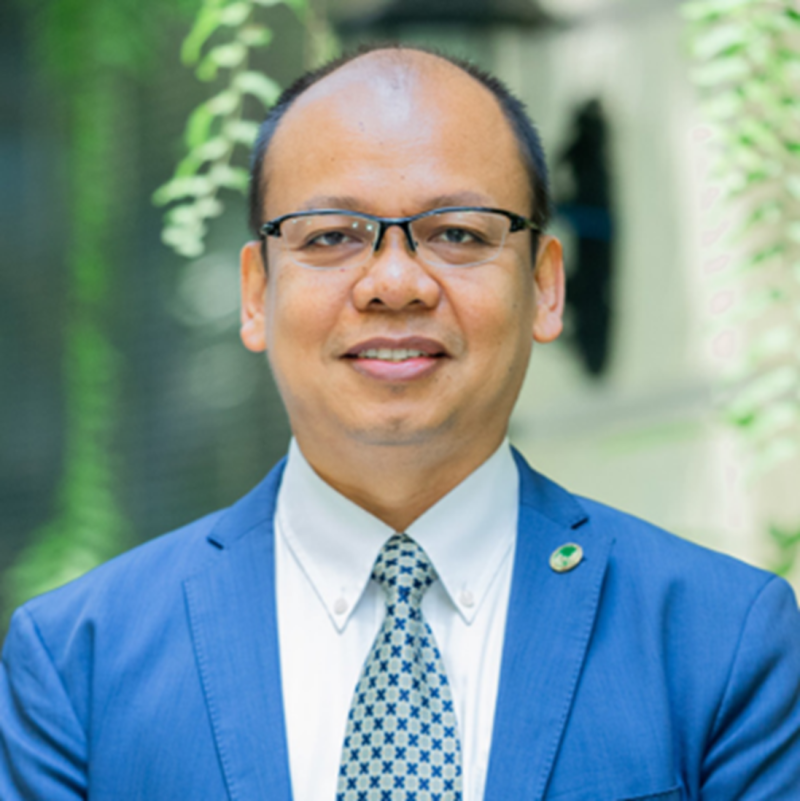 Dr Guilberto Borongan, Director & the Head of the Waste and Resource Management Cluster of AIT RRC.AP
Dr Guilberto Borongan, Director & the Head of the Waste and Resource Management Cluster of AIT RRC.AP
Dr. Guilberto Borongan is the Director and Head of the Waste and Resource Management Cluster at AIT RRC.AP, and an Affiliated Faculty of Urban Innovation and Sustainability at AIT’s Department of Development and Sustainability. With over 20 years of experience, he specializes in waste management and 3R (reduce, reuse, recycle) strategies across Southeast and East Asia. His expertise includes developing sustainable waste management systems, addressing marine litter, mercury waste, and promoting low-carbon, climate-resilient solutions for developing economies in Asia and the Pacific.
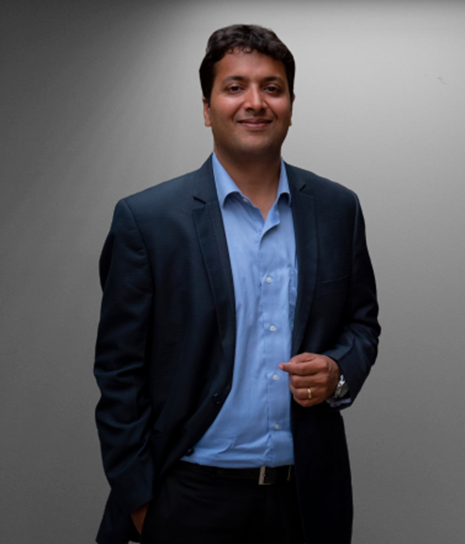 Piyush Dhawan, Principal Advisor, GIZ 3RproMar
Piyush Dhawan, Principal Advisor, GIZ 3RproMar
Piyush holds a Masters in Business Administration from Germany and a Bachelors in Economics with Honors from Delhi University, India. With extensive experience in environmental management and biodiversity conservation, Piyush Dhawan has held prominent positions such as Resource Mobilization and Partnership Lead for UNDP India and National Advisor on Business and Biodiversity for GIZ India. Piyush was honored with the German Chancellor Fellowship by the Alexander von Humboldt Foundation in 2017. Piyush is the Principal Advisor and Project Director of the 3rpromar project.
FACILITATOR
 Solomon Huno, Waste and Resource Management, AIT RRCAP
Solomon Huno, Waste and Resource Management, AIT RRCAP
Solomon Huno is a Senior Programme Officer at AIT RRC.AP’s Waste and Resource Management Cluster. With over 15 years of experience in Africa and Southeast Asia, he specializes in project design, policy management, and monitoring. His work focuses on environmental innovation, pollution prevention, waste management, and promoting sustainability through transformative policies and technology deployment.
SPEAKERS
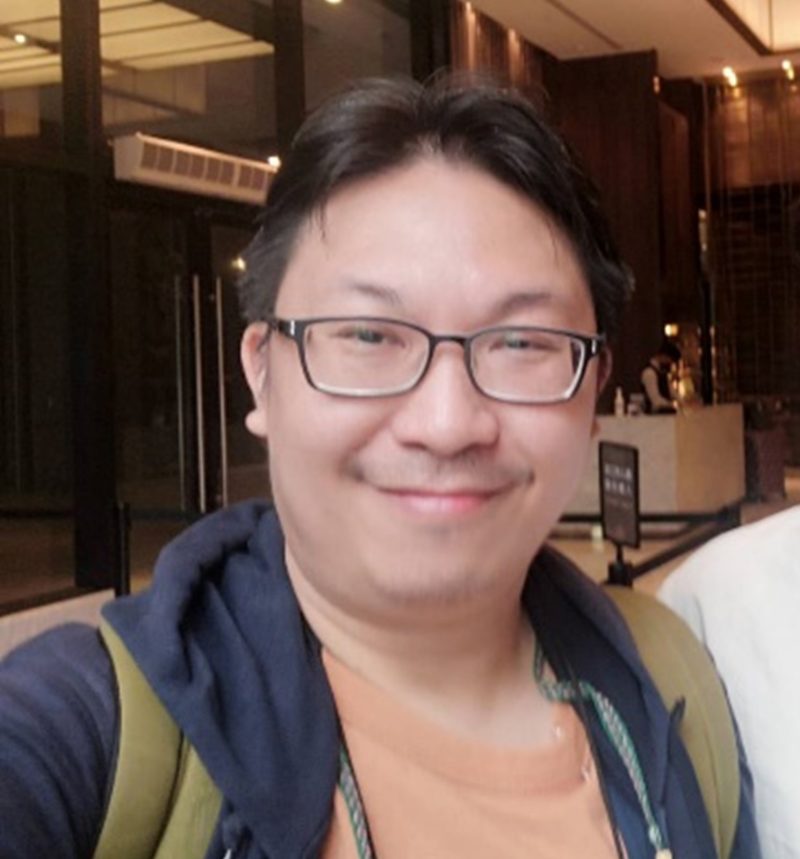 Mr. Suppajit Sukkunta, Environmentalist, Pollution Control Department (PCD),
Mr. Suppajit Sukkunta, Environmentalist, Pollution Control Department (PCD),
Ministry of Natural Resources and Environment (MONRE) Thailand
Mr. Suppajit Sukkunta is a seasoned Environmentalist at the Pollution Control Department (PCD) within Thailand’s Ministry of Natural Resources and Environment. With a Master’s degree in Environmental Technology from Mahidol University, he brings nearly two decades of expertise in integrated solid waste management. His contributions include formulating national environmental policies, developing solid waste action plans, and designing systems for data collection and environmental problem prevention. Mr. Sukkunta has also completed specialized training in resource recirculation and environmental management across ASEAN and Japan.
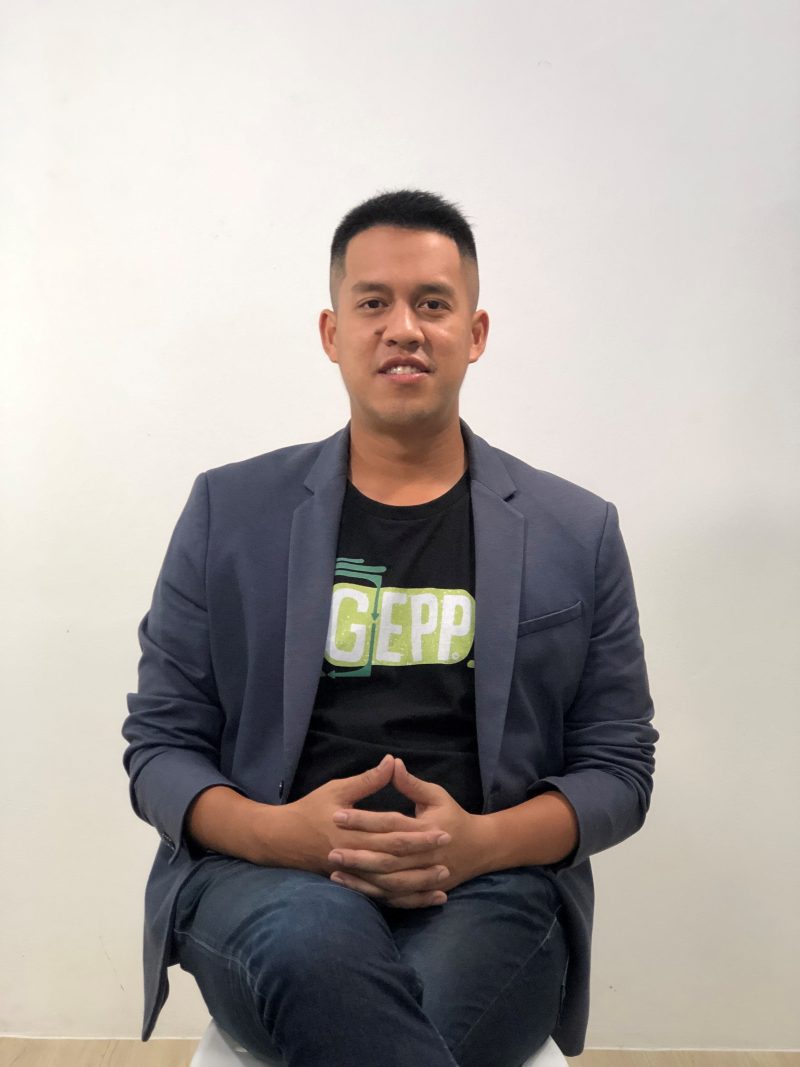 Dome Boonyanurak, Co-founder & CMO, GEPP
Dome Boonyanurak, Co-founder & CMO, GEPP
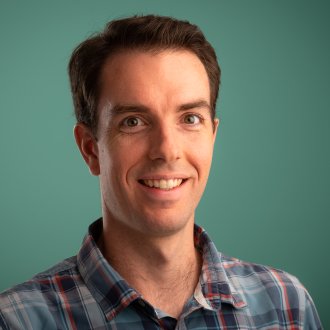 Francois Clayer, Norwegian Institute for Water Research (NIVA)
Francois Clayer, Norwegian Institute for Water Research (NIVA)
François Clayer is a research scientist at the Norwegian Institute for Water Research (NIVA) with expertise in developing and applying process-based models in diverse environmental challenges. In particular, he develops models to help reduce plastic pollution. He contributes to the representation of environmental and socio-economic processes influencing micro- and macroplastic fate across catchments. To familiarize non-specialists and stakeholders to modelling tools, he develops user-friendly web-based interfaces. One interface is publicly available on ikhapp.org. He is currently involved in research projects between Norway and India, ASEAN countries, and China. He holds a PhD from the University of Québec, Canada and is always happy to meet new faces!
 Steffen Blume, Deutsche Gesellschaft für Internationale Zusammenarbeit (GIZ) GmbH, Project Manager – Marine litter reduction & circular economy
Steffen Blume, Deutsche Gesellschaft für Internationale Zusammenarbeit (GIZ) GmbH, Project Manager – Marine litter reduction & circular economy
Experienced environmental engineer dedicated to sustainability and environmental protection. With over 15 years of professional experience in international development. Worked in water supply and sanitation and specialized into circular economy and marine litter prevention, with a passion for data driven and digital approaches. Currently, he works as a project manager at GIZ HQ and advises marine litter portfolio globally.Short bio and Photo
PANEL DISCUSSIONS
 Mr. Suppajit Sukkunta, Environmentalist, Pollution Control Department (PCD),
Mr. Suppajit Sukkunta, Environmentalist, Pollution Control Department (PCD),
Ministry of Natural Resources and Environment (MONRE) Thailand
Mr. Suppajit Sukkunta is a seasoned Environmentalist at the Pollution Control Department (PCD) within Thailand’s Ministry of Natural Resources and Environment. With a Master’s degree in Environmental Technology from Mahidol University, he brings nearly two decades of expertise in integrated solid waste management. His contributions include formulating national environmental policies, developing solid waste action plans, and designing systems for data collection and environmental problem prevention. Mr. Sukkunta has also completed specialized training in resource recirculation and environmental management across ASEAN and Japan.
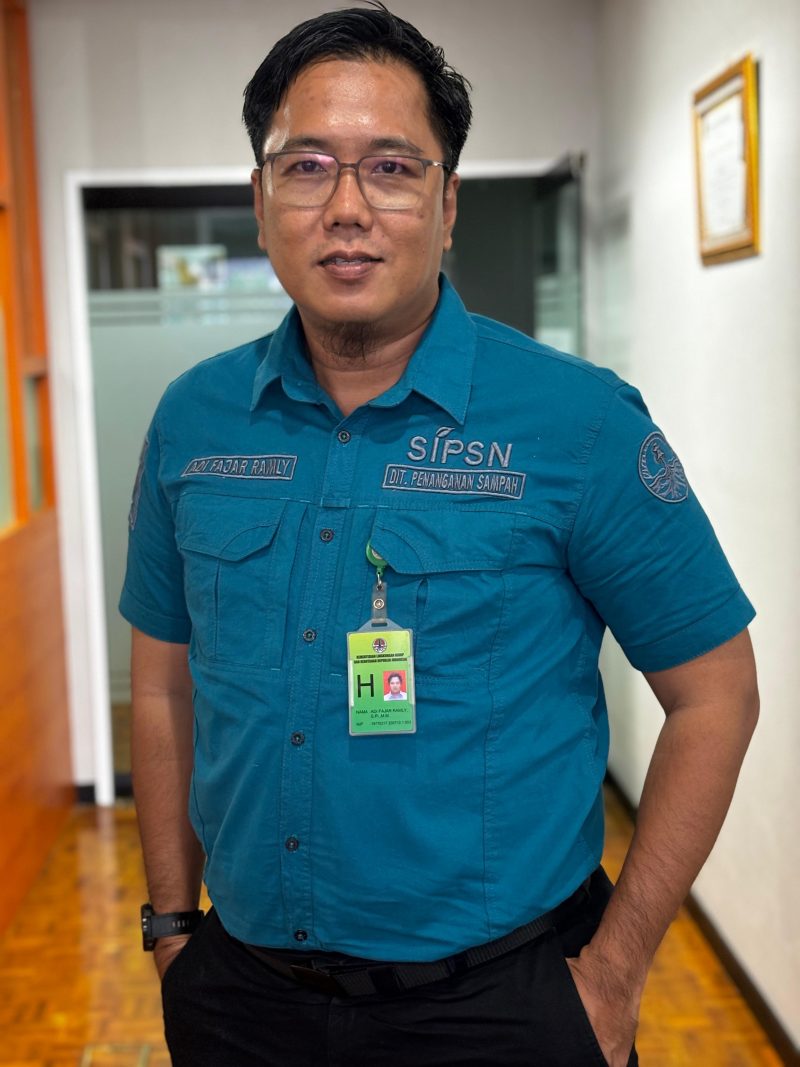 Mr. Adi Fajar Ramly Directorate and Waste Reduction, MoEF, Indonesia
Mr. Adi Fajar Ramly Directorate and Waste Reduction, MoEF, Indonesia
Adi Fajar Ramly is an accomplished young professional in environmental management with four years of experience at the Indonesian Ministry of Environment and Forestry (MoEF). Currently serving as an Environmental Analyst in the Monitoring Section under the Sub-Directorate of Waste Management Performance Assessment, Adi has previously held the role of Environmental Extension Officer, Junior Expert in the Sub-Directorate of Monitoring and Evaluation. His expertise spans waste management, monitoring, and evaluation, with a dedicated focus on assessing and enhancing waste management practices to support sustainable development goals.
| Time | |
| 14:00 – 14:20 | Opening session
Welcome remarks
Dr Guilberto Borongan, Director of AIT RRCAP |
| Opening remark
Piyush Dhawan, Principal Advisor, Reduce, Reuse, Recycle to Protect the Marine Environment and Coral Reefs” (3RproMar) |
|
| 14:20- 14:30 | Mr. Suppajit Sukkunta PCD, MONRE, Thailand
Institutionalization of waste management data and knowledge management systems at national and local levels; experience and best practices from Thailand. |
| 14: 30-14:45 | Dome Boonyanurak, Co-founder GEPP SA-ARD Co., Ltd
Practical approaches to building, communicating, and maintaining a robust MSW/plastic waste management database.
|
| 14: 45-15:00 | Francois Clayer, Norsk institutt for vannforskning (NIVA)
Application of dynamic models as decision support tools for managing plastic pollution
|
| 15:00 – 15:15 | Steffen Blume, Project Manager, Reducing Plastic Leakage into the Oceans, GIZ
Applications of waste data collection and leakage analysis: GIZ Waste Flow Diagram and WaCT
|
| 15:15- 15: 55 | Panel discussions
Panelists Mr. Suppajit Sukkunta, PCD, MoNRE, Thailand Mr. Adi Fajar Ramly, Directorate on Waste Reduction, MOEF, Indonesia Dome Boonyanurak, Co-founder GEPP SA-ARD Co., Ltd
Facilitated by Solomon Huno, AIT RRCAP
· Sharing practical experiences, use cases of knowledge platforms and solid waste databases in improved solid waste governance in ASEAN cities.
· Exploring the role of comprehensive waste data and databases in enhancing municipal waste management strategies.
· Discussion on challenges in collecting and utilizing solid waste management data and strategies to overcome these issues. |


